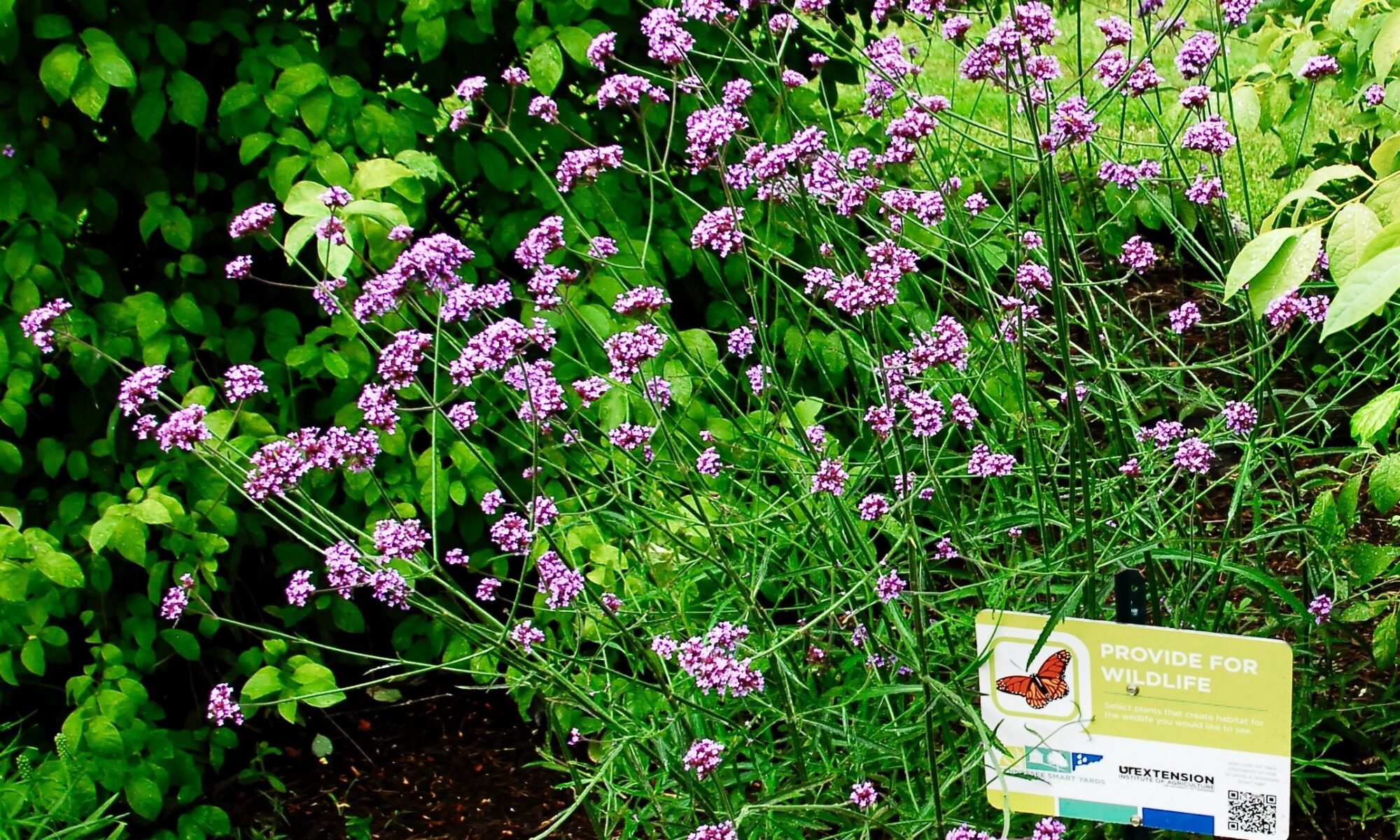
Submitted by Shalena Durkot, garden coordinator at the UT Gardens, Crossville
Pollinator plants are a hot commodity, and who doesn’t want to attract beautiful butterflies to their garden? While there are many important native species to incorporate, consider mixing in other plants as well. One of my longtime favorites is Verbena bonariensis, and it is a butterfly magnet. Goldfinches also have been spotted feasting on them.
Verbena bonariensis, commonly referred to as tall verbena, Brazilian verbena, or vervain has pale purple blooms throughout summer up until frost. It stands tall and proud in the landscape, at about four to five feet, but does not overshadow its companions. The strong stems and airy nature make it perfect sprinkled in amongst other plants, especially during the dog days of summer.
Tall verbena is native to South America. It is a tender perennial hardy from zones 7 to 11 but can self-seed, making it work in cooler regions. However, this has raised concerns about naturalization in some southern states and California where seedlings grow more freely.
Plants are easily grown in full sun with average to moist well-drained soil. They tolerate hot dry conditions and have few insect or disease problems other than powdery mildew. If powdery mildew becomes a problem, they can be cut back. This may also be done if stems are broken to encourage more blooms or to help control re-seeding. However, it is best to leave stems intact if growing in colder regions.
Flowers of tall verbena are quarter inch tubes set in two-to-three-inch rounded clusters. They are perfect for attracting pollinators such as hummingbirds and butterflies. Plant them in mixed borders, meadows, cottage gardens, and cutting gardens.
Be sure to check out these dwarf cultivars perfect for container growing and compact space:
- ‘Lollipop’ – grows one to two feet
- ‘Meteor Shower’ – award winner, grows 20 to 30 inches, plants set little seed
- ‘Vanity’ – All American Selection winner, grows to 24-30″
Verbena bonariensis can be found at all three UT Gardens locations.
The UT Gardens includes plant collections located in Knoxville, Crossville and Jackson, Tennessee. Designated as the official botanical garden for the State of Tennessee, the UT Gardens are part of the UT Institute of Agriculture. The Gardens’ mission is to foster appreciation, education and stewardship of plants through garden displays, educational programs and research trials. The Gardens are open during all seasons and free to the public.